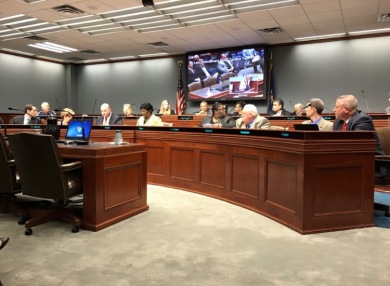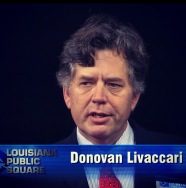
Over the last year or so, there seems to have been a spike in substance abuse testing cases in the NOPD. These are cases where officers have tripped the substance abuse test because of legally and properly prescribed medication. Since this has become an issue, I think it is probably good to go over the procedure for substance abuse testing in the NOPD.
Pursuant to Civil Service Rules, you can be subjected to substance abuse testing for the following reasons:
- As part of the hiring process;
- Promotion/End of Probationary Period;
- Involved in an Accident/Injury;
- For Cause; or
- Random
If you are involved in an accident or suffer an on-the-job injury, you will be subjected to a substance abuse test immediately (relatively speaking). This is at least partly because workers compensation does not have to pay for injuries suffered by someone who was impaired at the time they were injured. There are other compelling governmental interests in testing post-accident or post-injury.
If you are selected for a promotional, end of probationary period, cause, or random substance abuse test, you will be notified while you are at work and will have an hour to appear at the drug testing facility.
When you appear at the testing facility, you will be directed to urinate in a cup (generally). The urine collected in the cup will be divided into two tubes (split sample) and the remaining urine is disposed of. You will watch the technician put labels on the vials which you will initial. Chain of custody is important, so the testing facility should pay close attention to the various steps of the chain of custody.

If you are taking prescription narcotics, such as: Adderall, Ritalin, Valium, or Xanax, you WILL TEST POSITIVE. Don’t panic. But, you must know that it is coming.
If you test positive, the Health Department generates a form letter informing you that you tested positive and what you tested positive for. The letter, which is delivered to the address the city has on file, explains that you have 5 days to provide documentation demonstrating that the medication was taken legally and justifiably.
Once you get the letter, you should immediately go down to the Health Department in City Hall and give them copies of your current prescription records.
After the 5 days is up, the test results and any documentation you submitted, is sent to the Medical Review Officer. The Medical Review Officer then verifies the test results. If you provided prescriptions, then the Medical Review Officer generally finds the positive test results justified. If the Medical Review Officer finds the positive test results justified, then that is the end of the line. The Department is never notified. PIB does not conduct an investigation. The officer is never suspended or reassigned. That is the end of the line.
If you do not provide the requested documentation within the 5 days, then the Medical Review Officer will verify the test results and notify the Public Integrity Bureau. If the Public Integrity Bureau is notified then they will notify you. They will notify you that you are suspended or placed on administrative reassignment (depending on what you tested positive for) pending an internal investigation. Sometimes this happens by no fault of the officer. Sometimes this happens because of the negligence of the officer.
There are a couple of take-aways from this.
- Make sure your address is up to date with the Department;
- If you move, make sure you file a new change of domicile form with the Department;
- If you are called for a drug test and you know that you are going to test positive, then a couple of days after you provide your sample, bring your prescription records to the Health Department regardless of whether or not you received the letter from the Health Department. You are safer to assume that there has been some type of problem with the delivery of the certified letter.
DO NOT rely on records you have previously provided to the Department, the Health Department, or Civil Service. Each positive test result is analyzed independently of prior positive test results. You have to submit the documentation of legitimate prescription usage each and every time you have a positive test result. There is no mechanism to provide this documentation in advance and you are likely never to see such a mechanism.
DO NOT rely on discussions you have with your supervisor to justify not bringing records to the Health Department.
DO NOT take it upon yourself to provide medical records to PIB.
If you know you are going to test positive, you do not receive a letter, and you go down to the Health Department to provide records and are told they don’t have any record of a positive test, don’t give up. Go back after a few days and make sure you are good to go.
If you receive a certified mail notice from the New Orleans Department of Health, go to the Post Office and sign for the letter. If you get the letter and it is past the 5 days allowed to provide documentation, don’t let that stop you from going down to the Health Department and providing documentation.
If you are notified by the Health Department of a positive test result, you do not need to contact your FOP attorney unless a) you have questions; or b) you are not going to be able to provide the proper medical documentation.
If you are notified of a positive test result from PIB, you should call your FOP attorney,
Be aware of the procedure and you will avoid problems. As usual, if you have any questions, feel free to shoot me an email or give me a call.




 Recently committee Chairman Franz Borghardt, Louisiana FOP President Darrell Basco, and others appeared as panelists on the
Recently committee Chairman Franz Borghardt, Louisiana FOP President Darrell Basco, and others appeared as panelists on the 
